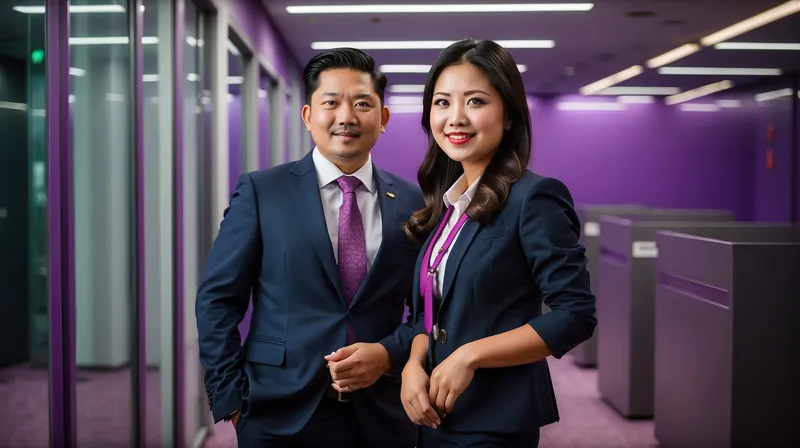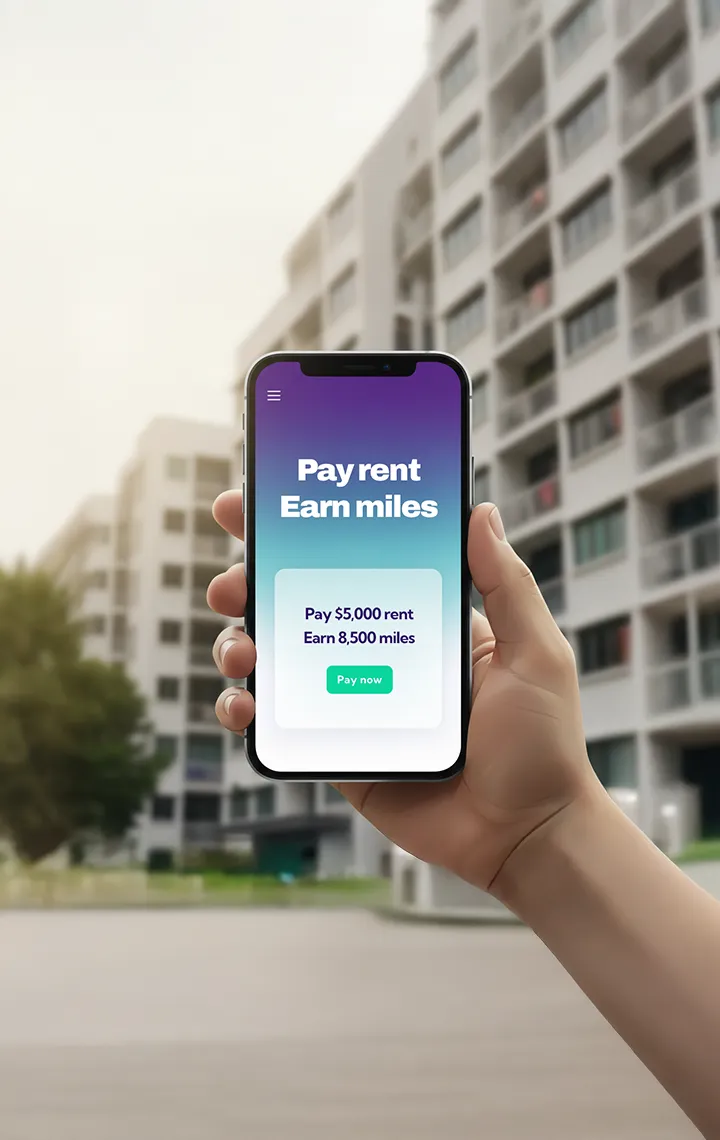
1. Determine your budget
Before starting your search for rental properties, it's important to figure out how much you can afford to spend each month on rent. This will help you narrow down your options and avoid wasting time on properties that are outside your price range.
Finding the right apartment in Singapore can be overwhelming, especially when it comes to determining your budget. To start, it's important to calculate your monthly income and expenses, including any debts or savings goals you may have. As a general rule of thumb, your rent should not exceed 30% of your monthly income. Consider other factors such as location, transportation costs, and amenities when deciding on your budget. It's also essential to have an emergency fund to cover unexpected expenses, such as repairs or medical bills. With careful planning and budgeting, you can find the perfect apartment in Singapore without breaking the bank.
The cost of renting properties in Singapore can be quite high, especially in popular and convenient locations. However, the prices vary depending on factors such as location, size, and age of the property. Generally, you can expect to pay anywhere from SGD 1,000 to SGD 10,000 or more per month for a rental property.
Compared to other countries, Singapore's rental prices are relatively high, especially in comparison to neighbouring countries in Southeast Asia. However, the cost of living in Singapore is also generally higher than in other countries in the region, so it is important to take this into consideration when comparing rental prices. Ultimately, the cost of renting in Singapore will depend on your budget and specific needs, so it's important to do your research and carefully consider your options before making a decision.

2. Research the neighbourhoods
Singapore has many different neighbourhoods with their own unique characteristics, so it's important to do your research and find the one that's the best fit for your lifestyle and preferences. Consider factors such as proximity to work, public transportation, and local amenities.
Most expensive and affordable areas in Singapore
The most expensive areas to rent in Singapore are typically located in the central region, including areas like Orchard Road, Marina Bay, and the CBD. On the other hand, the cheapest areas to rent tend to be located in the suburban areas or the outskirts of the city, such as Woodlands, Jurong, and Sengkang. Of course, rental prices can vary greatly depending on factors such as the size of the property, the age of the building, and the specific location within each area. It's important to do your research and work with a trusted real estate agent to find a rental property that fits your needs and budget.
Where to find properties in Singapore
There are various resources available to help you find information about the neighbourhoods in Singapore. One option is to check online real estate platforms such as PropertyGuru and 99.co which provide information on the amenities, transport links, and crime rates in different neighbourhoods. You can also refer to government websites such as the Housing and Development Board (HDB) website and the Urban Redevelopment Authority (URA) website for information on planning areas and master plans for different neighbourhoods. Additionally, you can consult with real estate agents who have a good knowledge of the local market and can provide you with more detailed information on specific neighbourhoods
Most popular neighbourhoods in Singapore
Bugis
Located in the central region of Singapore, Bugis is a bustling area that offers a mix of old and new. It is known for its shopping destinations such as Bugis Junction and Bugis Street, as well as its vibrant street art and cultural landmarks like the Sultan Mosque. Bugis is also home to several universities and educational institutions, making it a popular area for students. When it comes to renting in Bugis, there are plenty of options available, including HDB flats, condos, and serviced apartments. The rental prices in Bugis can vary depending on the type of accommodation and the location, but generally, they tend to be on the higher side due to the area's central location and amenities.
Katong
Situated in the eastern part of Singapore, Katong is a charming neighbourhood with a strong Peranakan heritage. It is known for its colourful shophouses, delicious local food, and beautiful conservation houses. Katong is a popular residential area for expats and locals alike, with plenty of amenities such as malls, supermarkets, and schools. It is also located near the East Coast Park, a popular spot for outdoor activities and seaside dining. Close to Katong, Paya Lebar is another neighbourhood in the eastern part of Singapore, known for its upcoming development and growth. The area is set to become a major commercial and residential hub, with new malls, office spaces, and residential developments in the pipeline. In terms of rent conditions, Paya Lebar has a mix of older and newer developments, with the area's growth potential, rental prices in Paya Lebar are expected to increase in the coming years.
Orchard Road
It's one of the most famous shopping districts in Singapore. It's known for its high-end shopping malls, luxury boutiques, and designer stores. This area is a hub for fashion, entertainment, and dining, making it a popular destination for both tourists and locals. In addition to shopping, Orchard Road also features numerous entertainment options, such as cinemas, theatres, and art galleries. There are also many restaurants and cafes serving a variety of cuisines. Despite being a busy and bustling area, Orchard Road also has some green spaces, such as the Istana Park and Dhoby Ghaut Green, where people can take a break from the city's hustle and bustle. The area is highly sought after for its prime location and convenient access to public transportation, making it an attractive option for those who enjoy the urban lifestyle. When it comes to renting a property in Orchard Road, tenants can expect to pay a premium price for the prime location and luxurious amenities. However, rental conditions can vary depending on the specific property and landlord. It's important for renters to carefully review the rental agreement and negotiate terms if necessary, such as the rental rate, lease duration, and maintenance responsibilities. Additionally, take note of any additional fees or charges, such as security deposits, utility bills, and maintenance fees.
Marina Bay
Marina Bay is a prime area located in the heart of Singapore's Central Business District (CBD). It is a popular location for expats and locals alike due to its modern and luxurious atmosphere, as well as its close proximity to popular attractions such as Marina Bay Sands, Gardens by the Bay, and the Merlion statue. When it comes to renting in Marina Bay, be prepared for high prices as it is one of the most expensive areas in Singapore. However, the quality of the apartments and the amenities they offer are also generally top-notch. You can expect to find a range of options, from studio apartments to larger units, in both high-rise buildings and luxury condominiums. It is important to note that the demand for properties in Marina Bay is often high, which means that rental prices can be competitive and negotiation power may be limited. However, it is always worth trying to negotiate with the landlord or real estate agent to see if there is any flexibility in terms of rental rates or lease terms. Additionally, as with any rental agreement, make sure to carefully review the terms and conditions of the lease before signing. It is also a good idea to check out the building's amenities and services, such as 24-hour security, parking facilities, and nearby public transportation options.
Clarke Quay
This is a popular nightlife spot that is lined with bars, restaurants, and clubs, and it's a great place to enjoy drinks and live music. Clarke Quay is a riverside quay in Singapore, located along the Singapore River. It is a popular tourist destination and nightlife hub, with a wide selection of restaurants, bars, and clubs. Rental options in Clarke Quay are mainly limited to high-end condominiums and serviced apartments, with relatively high rental prices due to the prime location and amenities. However, there are also some more affordable HDB flats in nearby areas such as Chinatown and Tiong Bahru. It is important to note that the rental market in Clarke Quay can be competitive, and it is advisable to work with a reputable real estate agent to secure a suitable rental property.
Chinatown
As the name suggests, this area has a rich history and culture related to the Chinese community. It's home to traditional shops, temples, and some of the best hawker food stalls in the city.
Chinatown is a vibrant and bustling neighbourhood in Singapore known for its rich heritage and cultural attractions. It is home to several historical landmarks such as the Buddha Tooth Relic Temple and Museum, Sri Mariamman Temple, and the Chinatown Heritage Center.
Living in Chinatown offers a unique experience as it combines both traditional and modern elements. The neighbourhood boasts a variety of food options ranging from hawker stalls to high-end restaurants, and a lively street market scene where you can find souvenirs, clothing, and more. There are also several parks and green spaces in the area, including the People's Park Complex and the Pearl's Hill City Park.
In terms of rent conditions, Chinatown has a mix of both public and private housing options. Public housing options include Housing Development Board (HDB) flats and rental units, while private housing options include apartments and condos. Rental prices in Chinatown vary depending on the type of housing and location, with HDB flats generally being more affordable than private apartments and condos. It is worth noting that rental prices in Chinatown tend to be higher than other neighbourhoods due to its central location and popularity among expats and tourists.
Overall, living in Chinatown offers a unique cultural experience with a mix of traditional and modern amenities. While rental prices may be higher than other neighbourhoods, the central location and vibrant atmosphere make it an attractive option for those looking for a dynamic and exciting living experience in Singapore.
Sentosa Island
This is a popular tourist destination and a great place to relax and enjoy the beach. Sentosa is also home to attractions like Universal Studios Singapore and the S.E.A. Aquarium.
Sentosa is a resort island located south of the main island of Singapore. It is known for its luxurious living options and attractions such as Universal Studios, Resorts World Sentosa, and the famous Sentosa Beach. The living conditions on the island are known to be high-end, with many properties offering ocean views, private pools, and top-notch amenities such as gyms, spas, and concierge services. Sentosa is also known for its exclusive residential communities, including Sentosa Cove, where residents can enjoy the ultimate waterfront living experience.
In terms of rent conditions, Sentosa can be one of the most expensive areas in Singapore due to its prime location and luxurious amenities. However, there are options for both long-term and short-term rentals. Long-term rental options on Sentosa include apartments, condos, and houses, with a wide range of prices depending on the property type, size, and location. Short-term rentals are also available for those who want to experience the island's luxury living on a temporary basis, such as vacation rentals and serviced apartments.. Overall, Sentosa is a great option for those who want to experience the best of what Singapore has to offer in terms of luxury living and resort-style amenities.
Holland Village
This is a trendy and vibrant neighbourhood that's popular with expats. It's known for its bustling food scene, quirky cafes, and unique shops.
Holland Village is a trendy and vibrant neighbourhood in Singapore that is popular among young expats and locals alike. It is known for its charming shophouses, boutique shops, and trendy cafes and bars. The area has a lively atmosphere and is popular for its nightlife scene. In terms of living conditions, Holland Village offers a mix of apartments and landed properties, with the latter being more expensive due to the limited supply. However, rental prices in Holland Village are generally higher compared to other areas in Singapore due to its popularity and prime location.
That being said, living in Holland Village comes with its perks. The neighbourhood has great connectivity with easy access to major highways and public transportation options like the MRT and bus services. There are also several international schools in the area, making it a great location for families with children. Additionally, the neighbourhood has plenty of green spaces, including the popular Holland Village Park, where residents can enjoy outdoor activities and picnics. Overall, Holland Village is a great option for those looking for a trendy, lively neighbourhood with good connectivity and access to amenities.
Tiong Bahru
This is a hip and artsy area that's popular with younger crowds. It's known for its indie bookstores, galleries, and cafes.
Tiong Bahru is a residential neighbourhood in the Central Region of Singapore. It is known for its unique architecture, with many pre-war Art Deco style buildings, and its trendy cafes and boutique shops. Tiong Bahru is a popular area for young professionals and expats due to its vibrant atmosphere and convenient location.
In terms of living conditions, Tiong Bahru is a relatively quiet and peaceful neighbourhood despite its proximity to the city centre. It has a mix of public housing and private apartments, so there are options for a range of budgets. There are also many amenities nearby, including several supermarkets, hawker centres, and parks.
As for rent conditions, rental prices in Tiong Bahru can be quite high compared to other residential areas in Singapore, but it depends on the type of housing and location. The rental market in Tiong Bahru is competitive, so it's important to be prepared with a budget and know what you are looking for in terms of housing. Overall, Tiong Bahru is a desirable neighbourhood for those who want a balance of city living and a laid-back vibe.

3. Use a trusted real estate agent
Working with a reputable and experienced real estate agent can help make the rental process smoother and more efficient. Look for agents with good reviews and a track record of successful transactions.
To begin with, it's crucial to identify trustworthy real estate agents in Singapore, as they will play a significant role in your renting journey. Here are some tips to help you identify trustworthy real estate agents in Singapore:
- Check if the agent is registered with the Council for Estate Agencies (CEA) . The CEA is the regulatory body for real estate agents in Singapore, and registered agents have to abide by a code of conduct and ethics.
- Look for recommendations from friends or family who have rented properties in Singapore before. They can share their experiences with the agents they worked with and provide valuable insights.
- Research the agent's online presence, including their website and social media profiles. This will give you an idea of their level of professionalism and expertise.
- Take note of how the agent communicates with you. A trustworthy agent should be transparent, responsive, and attentive to your needs.
- Ask the agent for their credentials, including their licence number, qualifications, and experience.
It's essential to work with a trustworthy real estate agent when renting a property in Singapore. They can help you navigate the complex renting process, find suitable properties that match your budget and preferences, negotiate the terms of your lease, and ensure that your rights as a tenant are protected.
On the other hand, working with an untrustworthy agent can result in a range of issues, such as hidden fees, unfair lease terms, or properties that do not match your requirements. This can lead to unnecessary stress, financial losses, and even legal disputes.
In summary, taking the time to identify trustworthy real estate agents in Singapore is a crucial step when it comes to renting a property. By doing so, you can ensure a smoother and more satisfactory renting experience.

4. Check the condition of the property
When viewing rental properties, be sure to thoroughly inspect the unit to ensure that everything is in good working condition. Check for any signs of damage, such as water stains or mold, and make sure that all appliances are functioning properly.Before renting a property in Singapore, it's important to conduct a thorough inspection of the unit to ensure that it is in good condition and meets your needs. Here are some things to check:
- The overall condition of the unit: Look for signs of wear and tear, such as peeling paint, cracks in the walls, or damaged flooring.
- Plumbing and electrical systems: Test all faucets, showerheads, and toilets to make sure they are functioning properly. Turn on all lights and switches to ensure that the electrical system is working correctly.
- Appliances: Check all appliances to make sure they are in good working order.
- Safety features: Ensure that smoke detectors, fire extinguishers, and other safety features are present and functioning properly.
- Noise level: Visit the unit at different times of day to check the noise level from nearby roads or neighbours.
- Amenities: Check the availability and condition of any amenities provided, such as a swimming pool, gym, or barbecue area.
It's also important to clarify with the landlord or real estate agent what is included in the rent and who is responsible for maintenance and repairs. Don't be afraid to ask questions or raise any concerns before signing a lease agreement. By doing your due diligence, you can avoid any unpleasant surprises and ensure that you have a comfortable and safe living environment.

5. Read the lease carefully
Before signing a lease agreement, make sure to read through it carefully and understand all of the terms and conditions. Pay particular attention to the length of the lease, the amount of the security deposit, and any restrictions on the use of the property.
When you're renting a place, it's important to not only check the physical condition of the property but also to read the lease carefully before signing. Don't be in a rush to sign a lease just to secure a place, as this can lead to regrets down the road. Take your time to go through every clause of the lease agreement and make sure you understand everything.
Some important things to look for in the lease include the rental amount, payment due date, security deposit, length of the lease, renewal options, and termination clauses. Check for any hidden fees or charges, and be sure to clarify any ambiguities with the landlord or property agent.
If you fail to read the lease properly, you could end up in a situation where you're paying more than you expected, facing penalties for late payments or breaking the lease prematurely, or dealing with other unfavourable terms that you weren't aware of.
In case you come across any issues after signing the lease, such as disputes with the landlord or maintenance problems, you should refer back to the lease agreement to see if there are any clauses that can help resolve the issue. For example, the lease might specify who is responsible for certain repairs or what to do if there's a dispute over the security deposit.
Remember, renting a property in Singapore is a significant financial and legal commitment, so it's crucial to do your due diligence and read the lease carefully before signing.

6. Communicate effectively with your landlord
Clear communication with your landlord is important throughout your tenancy. Make sure to report any maintenance issues promptly and keep your landlord informed of any changes in your situation that may affect your ability to pay rent on time.
Prioritise clear and concise communication with their landlords and real estate agents. It is important to establish early on how communication should be done, what methods are preferred, and how often updates should be given. Tenants should also make sure to address concerns or questions promptly to avoid misunderstandings or delays.
In case of any disputes or issues, tenants should communicate clearly and provide any necessary documentation to support their claims. Finally, you should document all communication and agreements in writing to avoid any confusion or disputes down the road.
Overall, here are a few ideas to help you communicate with their landlords and real estate agents:
- Establish clear communication channels: Make sure you have the right contact information for your landlord or real estate agent, and establish clear channels of communication. This might include email, phone, or messaging apps.
- Be proactive: Don't wait for your landlord or agent to contact you. If you have questions or concerns, reach out to them in a timely manner. This will help prevent misunderstandings and ensure that issues are addressed quickly.
- Keep records: Keep track of all your communication with your landlord or agent, including emails, phone calls, and messages. This will help you avoid confusion and provide a record of any agreements or promises made.
- Be respectful: Remember to always be respectful when communicating with your landlord or agent. This will help build a positive relationship and make it easier to resolve any issues that may arise.
- Be specific: When communicating with your landlord or agent, be specific about what you need or want. This might include requesting repairs or asking for clarification on lease terms.
- Follow up: If you have made a request or reported an issue, follow up with your landlord or agent to make sure it is being addressed. This will help ensure that problems are resolved in a timely manner.
Overall, effective communication is key to a positive rental experience. By being proactive, respectful, and specific in your communication with your landlord or agent, you can help ensure that your needs are met and any issues are addressed quickly and effectively.

7. Be a good tenant
Building a positive relationship with your landlord can make your rental experience more enjoyable and less stressful. Be respectful of the property, follow the rules outlined in the lease agreement, and maintain good communication with your landlord. It might seem pretty obvious but it’s always good to mention the following:
Pay Your Rent On Time
Paying your rent on time is the most important thing you can do as a tenant. Make sure you understand when your rent is due and set a reminder for yourself. Late rent payments can not only result in hefty penalties but also negatively affect your landlord's impression of you as a tenant.
Keep The Property Clean
Keeping the property clean is crucial, especially if you're renting a shared space. Ensure that you clean up after yourself and maintain the cleanliness of the common areas. Regular cleaning also helps to prevent pest infestations and mould growth.
Respect The Property
Respect the landlord's property as if it were your own. Avoid making unnecessary modifications or damages to the property. If you need to make any repairs, notify the landlord immediately and get their approval before proceeding.
Communicate Effectively With Your Landlord
Effective communication with your landlord is key to maintaining a healthy landlord-tenant relationship. If there are any issues or concerns, address them immediately and work towards finding a solution together. Keep your landlord informed if you plan to move out or if you're going to have guests staying over.
Adhere To The Lease Agreement
Make sure you read and understand the lease agreement before signing it. Adhere to the rules and regulations set out in the agreement, including noise restrictions, pet policies and subletting. Breaking the terms of the lease agreement can result in penalties and even eviction.
Be Considerate To Neighbours
Be considerate to your neighbours, especially if you're living in a shared property. Avoid making loud noises late at night or early in the morning. If you plan to host a gathering, inform your neighbours beforehand and ensure that you keep the noise level down.
Keep Records Of All Transactions
Keep a record of all transactions between you and your landlord. This includes rent payments, repairs, and any communications. Keeping records can help you avoid any misunderstandings or disputes that may arise in the future.
Be Proactive
Be proactive in addressing any issues that arise in the property. If you notice any damages or malfunctions, notify the landlord immediately. This can help prevent further damages and ensure that repairs are made promptly.
Respect The Property Management Staff
Respect the property management staff, such as security guards and maintenance workers. They play an important role in maintaining the property and ensuring the safety of tenants. Treat them with respect and follow their instructions.
Being a good tenant in Singapore involves paying your rent on time, keeping the property clean, respecting the property, communicating effectively with your landlord, adhering to the lease agreement, being considerate to neighbours, keeping records of all transactions, being proactive, and respecting the property management staff. By following these tips, you can ensure that you have a positive and successful renting experience in Singapore.














